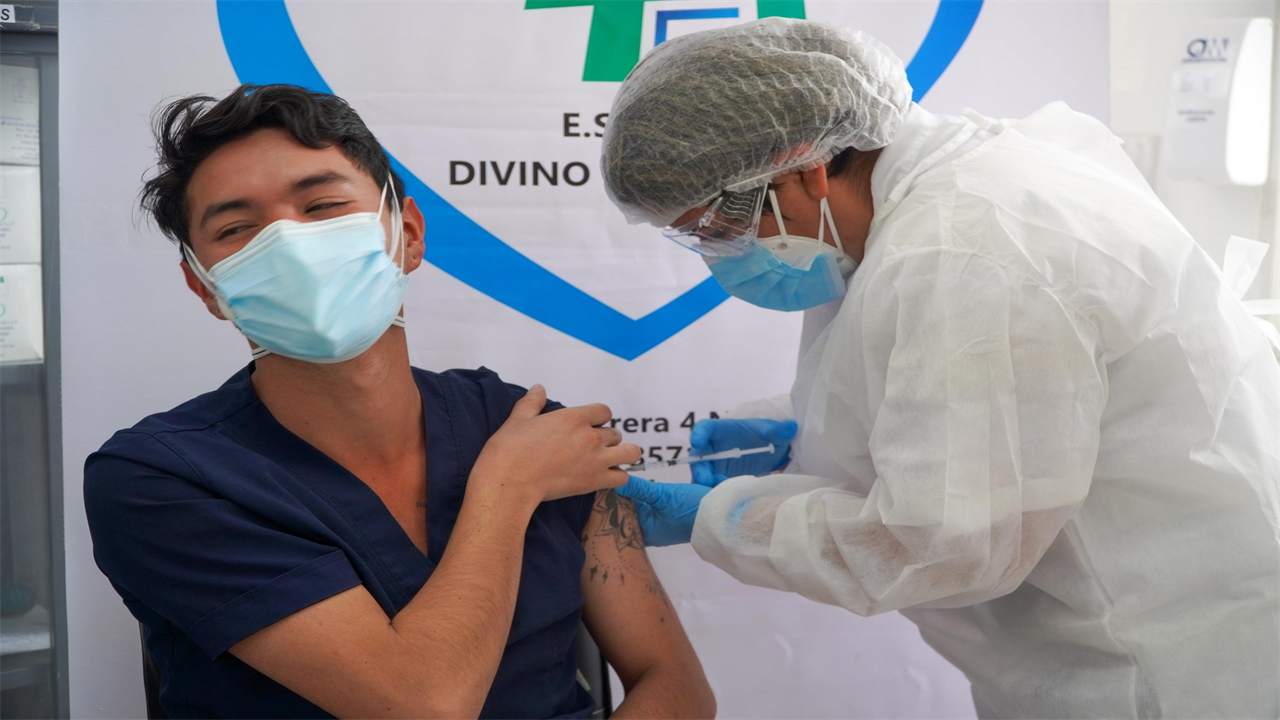Willingness To Get a COVID-19 Vaccine Is Much Higher in Developing Countries Than in the US
0 View
Share this Video
- Publish Date:
- 20 July, 2021
- Category:
- Covid
- Video License
- Standard License
- Imported From:
- Youtube
Tags

Application of the first pfizer vaccines against COVID-19 in Colombia. Credit: Harold Parraga
New study examines vaccine acceptance and hesitancy in 10 low- and middle-income countries in Asia, Africa and South America.
New research published in Nature Medicine reveals that willingness to receive a COVID-19 vaccine was significantly higher in developing countries (80% of respondents) than in the United States (65%) and Russia (30%).
The study provides one of the first insights into vaccine acceptance and hesitancy in a broad selection of low- and middle-income countries (LMIC), with more than 20,000 respondents and researchers from more than 30 institutions, including the International Growth Center (IGC), Innovations for Poverty Action (IPA), WZB Berlin Social Science Center, the Yale Institute for Global Health, the Yale Research Initiative on Innovation and Scale (Y-RISE) and HSE University (Moscow, Russia).
Personal protection against COVID-19 was the top reason for vaccine acceptance among LMIC respondents (91%) and concern about side effects (44%) was the most common reason for vaccine hesitancy. Health professionals were considered the most reliable sources of information about COVID-19 vaccines.
A vaccination in Central Java, Indonesia. Credit: Fadil Fauzi
The study comes at a critical time when vaccine shipments are still slow to arrive at the majority of the world’s population, and COVID-19 cases are on the rise in many parts of Africa, Asia and Latin America. The findings suggest that prioritizing vaccine distribution to low- and middle-income countries should yield high returns in expanding global vaccination coverage.
“As supplies of COVID-19 vaccines trickle into developing countries, the coming months will be critical for governments and international organizations to focus on designing and implementing effective vaccine uptake programs,” said Niccoló Meriggi, Country Economist for IGC Sierra Leone and study co-writer. “Governments can use this evidence to develop communication campaigns and systems to ensure that those who plan to get a vaccine actually do so.”
The researchers, who conducted the studies between June 2020 and January 2021, point out that vaccine acceptance may vary with time and with the information available to people. While the evidence on the safety and efficacy of available COVID-19 vaccines has become clearer over the past six months, serious but rare side effects may have undermined public confidence.
Saad Omer, director of the Yale Institute of Global Health and co-author of the study, said: “What we’ve seen in Europe, the US and other countries suggests that vaccine hesitancy can complicate policy decisions, allowing rapid and widespread uptake. of vaccines is hindered. . Governments in developing countries can now start enlisting trusted people such as health professionals to deliver vaccine side effects reports that are accurate, balanced and readily available to the public.
“In all countries, we see that acceptance of COVID-19 vaccines is generally slightly lower than for other vaccines, perhaps because of their novelty. However, the consistently pro-vaccine attitudes we see in low- and middle-income countries give us reason to be optimistic about adoption,” said Alexandra Scacco, Senior Research Fellow at the WZB and co-author of the study. evidence from our study may help inform strategies to expand global COVID-19 vaccination.”
Reference: “Understanding COVID-19 Vaccine Hesitancy” by Shingai Machingaidze and Charles Shey Wiysonge, Jul 16, 2021, Nature Medicine.
DOI: 10.1038/s41591-021-01459-7










